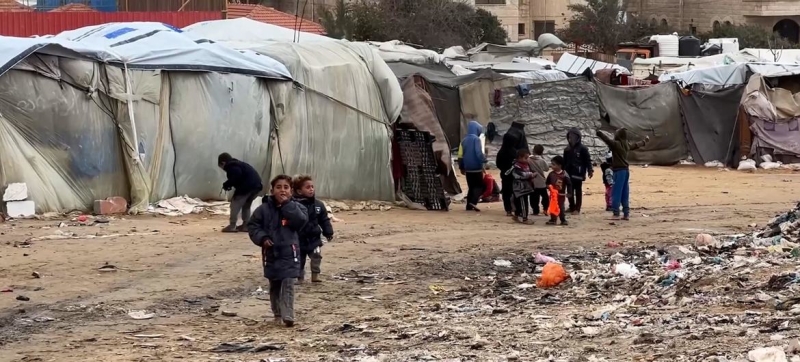
UN expresses concerns about compliance with international law in Gaza. Top stories of the day | Tuesday: Ukraine, Gaza, Syria, Afghanistan UN
The main news of the day in the UN and in the world: pre-New Year strikes on Ukraine, violations of international law in Gaza, more than 400 thousand Syrian refugees returned to the country, a ban on women working in Afghan NGOs.
Humanitarian aid to Ukrainians
Last night, residents of Ukraine were again affected by strikes by Russian forces, the UN Refugee Agency (UNHCR) reported. The UN and humanitarian partners are supporting victims in Shostka, Sumy region, by providing essential items and materials for housing repairs. The UN Office for the Coordination of Humanitarian Affairs noted that in 2024, 49 interagency convoys involving more than 20 UN agencies, as well as local and international organizations, delivered aid to the frontline areas of Ukraine.
Strikes on hospitals in Gaza
A series of Israeli attacks on hospitals in Gaza has brought the enclave’s medical system to the brink of complete collapse, according to a new report by the UN Human Rights Office (OHCHR). The document expresses serious concerns about compliance with international law. Between October 12, 2023 and June 30, 2024, at least 136 attacks were recorded on 27 hospitals and 12 other medical facilities. In most cases, Israel claims they were used by Palestinian armed groups for military purposes. However, there is insufficient evidence to support these allegations, the report says.
Syrian refugees
Since December 8, 58,400 people have returned to Syria, including refugees returning mainly from neighboring countries such as Lebanon, Jordan and Turkey. The UN Refugee Agency (UNHCR) estimates that 419,200 Syrian refugees have returned to their homeland since the beginning of the year as of December 29. At the same time, more than 664,000 people have been internally displaced in the country in one month. Of the 1.1 million displaced people – the highest figure documented on December 12 – nearly 486,000 had returned to their places of origin as of December 27.
Women’s Rights in Afghanistan
UN High Commissioner for Human Rights Volker Türk said today he was deeply concerned by the recent announcement by the de facto authorities in Afghanistan that non-governmental organisations would have their licences revoked if they continued to employ Afghan women. He said it was the wrong decision and would worsen the humanitarian and socio-economic situation. Turk once again called on the de facto authorities to repeal the decree, as well as all other measures that restrict women and girls’ access to education, work and services, including health care, as well as their freedom of movement.
